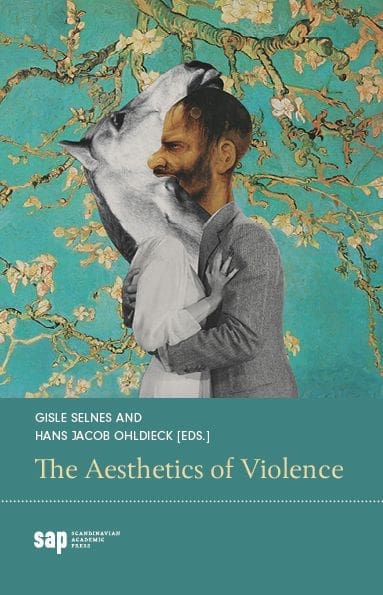Mikkel Bolt Rasmussen (1973) is Professor of Political Aesthetics at the Department of Arts and Cultural Studies, University of Copenhagen. Recent publications include Crisis to Insurrection (Minor Compositions, 2015), Hegel after Occupy (Sternberg Press, 2018), After the Great Refusal (Zero Books, 2018) and Trump’s Counter-Revolution (Zero Books, 2018).
Bruno Bosteels (1967) is Professor of Latin American and Iberian Cultures and Comparative Literature and Society at Columbia University. His latest publications are The Actuality of Communism (Verso, 2011), Marx and Freud in Latin America (Verso, 2012) and De Marx a Heidegger: El pensamiento de Oscar del Barco (Mariano Ariel Pennisi, 2020). He is currently preparing two new books, Philosophies of Defeat: The Jargon of Finitude (Verso) and The Mexican Commune (Duke University Press).
Frode Helmich Pedersen (1976) is Associate Professor of Nordic literature at the University of Bergen and Principal Investigator at the project “A Narratology of Criminal Cases”, funded by the Norwegian Research Council. In 2017 he published a book on the Norwegian author Bjørnstjerne Bjørnson. He has recently published articles on narrative evidence theory and the analysis of narratives in the legal judgment.
Magnus Michelsen (1984) works in the intersection of liter-ary science and theoretical psychoanalysis. Among his interests are theories of the subject, sexuality, modernist literature and radical politics. His doctoral dissertation, Tarrying with Sexual Matters. Thinking Change from Lacan to Badiou (UiB, 2018), examines the concept of change in Badiou’s reworking of Lacan’s psychoanalysis.
Stehn Aztlan Mortensen (1990) is a PhD candidate in Russian literature at the University of Bergen. He is also a fellow at the Davis Center for Russian and Eurasian studies at Harvard University, and a TORCH visiting researcher at the University of Oxford. His research interests include Soviet and contemporary Russian literature from a posthumanist vantage point. Mortensen has mainly published on Mikhail Bulgakov’s short prose, and is currently working on a dissertation about the poetics of intoxication in the works of Vladimir Sorokin.
Hans Jacob Ohldieck (1978) is Associate Professor of His-panic literature and culture at the University of South-Eastern Norway. His research is primarily on Latin American and Caribbean literature, as well as theories of subjectivation, violence, and radical politics. He is co-director of the Research Group for Radical Philosophy and Literature (University of Bergen) and editor of the academic journal Karib – Nordic Journal for Caribbean Studies.
Lilian Munk Rösing (1967) is Associate Professor at the De-partment of Arts and Cultural Studies, Copenhagen University, and a literary critic. She does her research and writing in the cross field of aesthetics, psychoanalysis, and cultural criticism. Her most recent book is on the painter Anna Ancher (Anna Anchers rum, Gyldendal 2018). She has a book published in English: Pixar with Lacan. The Hysteric’s Guide to Animation (Bloomsbury 2017).
Vladimir Safatle (1973) is Professor of philosophy at the University of São Paulo. His research interests are particularly within in the field of epistemology, psychoanalysis, political philosophy and philosophy of music. From 2010 to 2019 he was a columnist of Folha de S. Paulo, and he contributes regularly to Brazilian public debates. His latest publications are Dar corpo ao impossível: o sentido da dialética a partir de Theodor Adorno (2019) and El circuito de los afectos: cuerpos politicos, desamparo y fin del individuo (2019).
Cecilia Sjöholm (1961) is Professor of Aesthetics at Södertörn University. Her research is particularly focused on the relation between art and politics in contemporary culture. She has published extensively on art, psychoanalysis and critical theory. Her latest book, Doing Aesthetics with Arendt; How to See Things (Columbia University Press, 2015) looks at the way in which Hannah Arendt’s reflections on art and aesthetics invite us to rethink her political concepts.
Torgeir Skorgen (1967) is Professor of German literature and co-director of the research group “The Borders of Europe” at the University of Bergen, focusing on cultural borders and border crossing minorities in Europe. His main research interests are German exile literature, German-Jewish literature, migration history, multiculturalism, racism, romanticism, nationalism and national minorities. Skorgen has published several books, articles and chronicles on the German poet Hölderlin, nation building, racism, minorities, Jewish history, anti-Semitism, ex-clusion and inclusion.
Rasmus Ugilt (1979) is a Ph.D. in Philosophy from Aarhus University. He is a Senior Analyst at The Department of Wild Analysis, and a member of the Center for Wild Analysis. He is working as a philosopher at the bureau MU.ST. His research focuses on German idealism, psychoanalysis, political philosophy and philosophy of film. Ugilt has published the books The Metaphysics of Terror (Bloomsbury, 2012), Giorgio Agamben: Political Philosophy (HEB, 2014), Nydelse (Aarhus Universitets-forlag, 2015) and several peer-reviewed articles in international scholarly journals.
Synnøve Marie Vik (1981) is a Ph.D. candidate in visual culture at the Department of Information Science and Media Studies at the University of Bergen, with a dissertation titled Nature as violent and violated: Five essays on the visual culture of the Anthropocene. Her research interests include visual petro-cultures, art and the Anthropocene and eco-criticism, as well as materiality and craft. She works as a special advisor in the department of arts and cultural development in Bergen munic-ipality, and has previously been a curator and critic.
